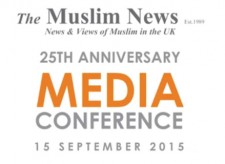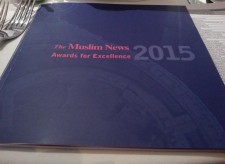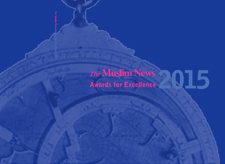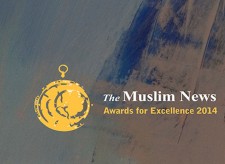JERUSALEM (AA): A proposal to install surveillance cameras at Jerusalem’s flashpoint Al-Aqsa Mosque complex in a bid to ease recent tensions in the area has left Palestinians and Israelis at odds over implementation.
With Palestinians accusing Israel of trying to seize administrative control of the site, and Israel claiming the mosque compound is being used by Palestinian youth to stage unruly protests, the installation of cameras was proposed this weekend as a means of verifying the conflicting allegations.
But the proposal, brokered by U.S. Secretary of State John Kerry during talks held in Jordan on Sunday, has angered the Palestinian side, which was not involved in the negotiations.
The Times of Israel newspaper quoted Palestinian Foreign Minister Riyad al-Maliki as criticizing the proposal on Palestinian radio.
Al-Maliki asked who would monitor the video feeds, arguing that, instead of documenting forced incursions by Jewish hardliners into the mosque, the new cameras would likely be used to arrest Palestinian youth who frequently gather to protest such incursions.
Mahdi Abdul Hadi, founder of the Palestinian Academic Society for the Study of International Affairs, which has produced several studies on Al-Aqsa, said it remained unclear whether the installation of cameras alone could ease a month of violence in which 59 Palestinians and 10 Israelis have been killed.
“Officials are interested in containing the current storm around Al-Aqsa… On a political level, the interest is in the process [of the talks],” Abdul Hadi told Anadolu Agency.
“[But] On the street level, there are doubts about the implementation [of the proposal],” he said. “There is no trust in [Israeli Prime Minister Benjamin] Netanyahu’s statements.”
He added: “The challenge is the presence of the hardline Israelis in the Old City [of Jerusalem] who are provoking the situation. That their presence is backed by the security forces and government is worrying.”
Israel, for its part, has welcomed the proposed installation of cameras — a product of talks with Jordanian officials.
Netanyahu said the cameras would serve to “disprove the claim that Israel is changing the status quo [in which Al-Aqsa is administered by the Jordanian authorities]; Second, to show where the provocations really come from and foil them before they happen”.
– ‘Status quo’
The “status quo” in this case generally refers to arrangements — made after Israel occupied East Jerusalem in 1967 — that allow a Jordanian foundation, known as the Waqf, to administer Al-Aqsa’s daily affairs.
Israel, however, has frequently been accused by Palestinians of attempting to “alter” this status quo.
Israel controls all of Al-Aqsa’s entry points, where it usually stations armed security forces, while often banning entry to Palestinian men under 50.
The current wave of violence in the region was sparked by protests last month against restrictions on Palestinian entry to the site, which were announced amid a series of Jewish holidays.
The number of days on which Israel has imposed age-based bans on entry to the mosque increased from three days in 2012 to 41 last year, according to police figures cited in a report by Emek Shaveh, an Israeli group that studies archaeological sites in Jerusalem.
The Jordanian Waqf, for its part, frequently reports incursions by hardline Jewish settlers — often accompanied by security forces — into Al-Aqsa, despite limitations on their entry to the site and a longstanding ban on non-Muslim prayer inside the mosque complex.
Although the site is also considered sacred by Jews, who believe it to be the site of two temples destroyed in ancient times, a 1967 decree issued by Israel’s chief rabbi forbade Jews from visiting the compound, which they refer to as the “Temple Mount”.
Yonathan Mizrahi, head of Emek Shaveh, told Anadolu Agency that recent changes to the “status quo” had not been limited to restrictions on Palestinian access to the Al-Aqsa compound, which is also known as the Haram Al-Sharif.
“We’ve seen a lot of activity; all kinds of [archaeological] projects to escalate around the Haram and isolate it from the Muslims,” said Mizrahi.
“The Mughrabi Bridge [by which non-Muslims enter Al-Aqsa] is something that Israeli would like to build, but they’re not supposed to reach into the area around Aqsa,” he added.
He went on to say that the bridge, along with other excavated tunnels around Al-Aqsa, was one of many examples of archaeological work in the vicinity that had altered the status quo by increasing the Israeli presence at the site — while also stoking tensions with the local Muslim population.
“The [Jewish] settlers have succeeded to have more influence [in Jerusalem’s Old City]. There are more and more settlers responsible for the archaeological sites close to Al-Aqsa,” he said.
– ‘Last stand’
Many Palestinians explain their fear of encroaching Israeli influence at Al-Aqsa by comparing it to the restructuring of the Ibrahimi Mosque in the West Bank city of Hebron, where Jewish and Muslim worshipers are both allowed to visit, albeit separately.
“For Palestinians, increasing Jewish interest in and presence on the [Al-Aqsa] esplanade portends the too familiar,” read a June report released by the International Crisis Group, which specializes in political analysis.
“From desecration of a number of mosques and other holy sites after the 1948 War to division of the Ibrahimi Mosque in Hebron to allow Jewish worship at the Cave of Machpela [Patriarchs], Palestinians progressively have lost control over religious sites and national symbols,” the report added.
Many Palestinians believe their last stand is at Al-Aqsa, in a city already lost,” the group asserted.

















